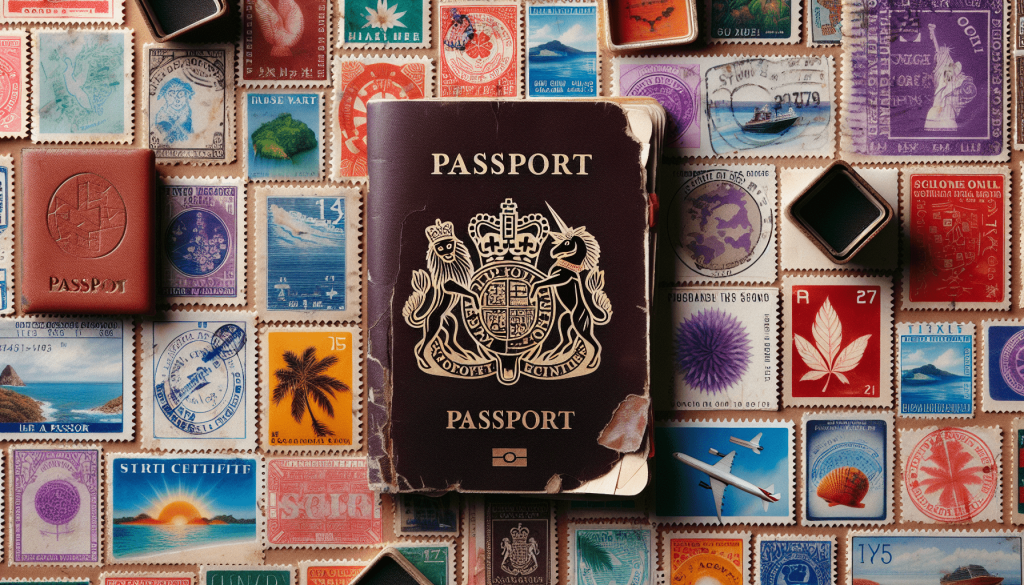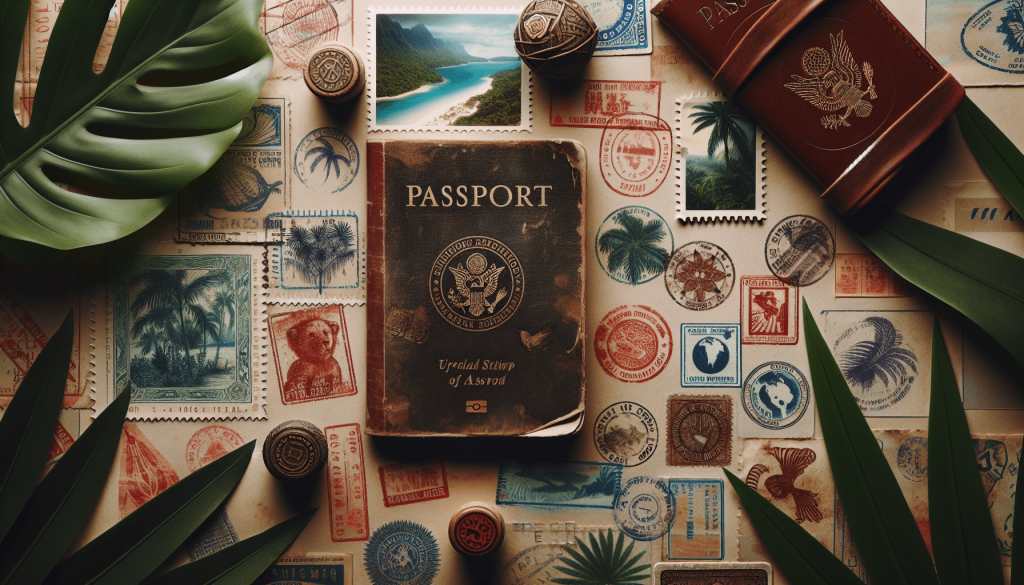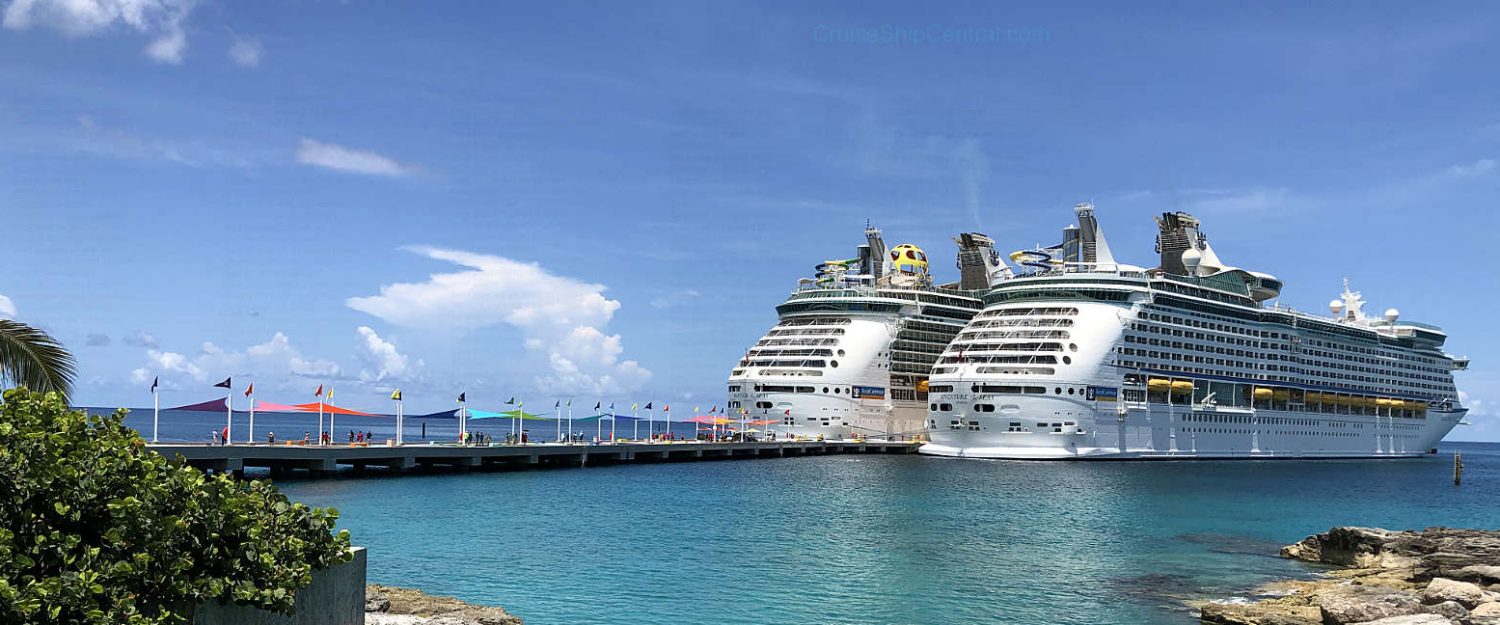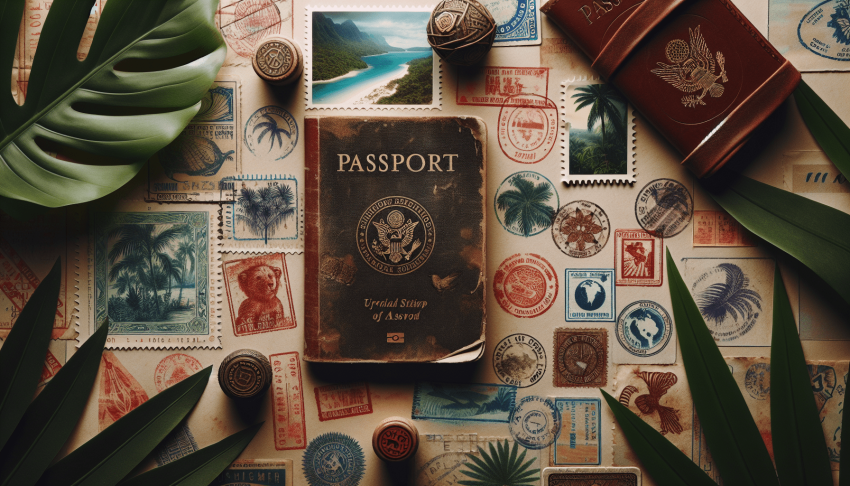I’ve always dreamt of embarking on a grand cruise adventure, sailing across vast oceans and exploring exotic destinations. However, before setting sail, there’s one burning question on my mind: Can I use my birth certificate instead of a passport for a cruise? As a friendly traveler eager to unravel this mystery, I embarked on a quest for answers, delving into the world of travel regulations and requirements. Join me on this journey as I unravel the truth behind this curious conundrum and discover the key to a smooth sailing vacation.

Birth Certificate vs. Passport
As a traveler, it’s important to understand the differences between a birth certificate and a passport, and when each document is necessary for a cruise. While both documents serve as proof of identity and nationality, they have distinct purposes.
Differences between a birth certificate and a passport
A birth certificate is an official document issued by a government agency, usually at the time of birth. It contains vital information such as the individual’s name, date of birth, place of birth, and the names of the parents. On the other hand, a passport is an internationally recognized travel document that certifies an individual’s identity and citizenship. It includes information such as the bearer’s photograph, signature, nationality, and other key identification details.
When a birth certificate can be used instead of a passport
In certain cases, a birth certificate can be used instead of a passport for domestic cruises. Close-loop cruises, which start and end at the same U.S. port, may accept a birth certificate as proof of citizenship. These cruises usually visit destinations within the United States, such as Hawaii, Puerto Rico, or the U.S. Virgin Islands. However, it is important to note that this requirement can vary depending on the cruise line, itinerary, and individual circumstances. It is always recommended to check with the cruise line or travel agent for specific requirements.
When a passport is necessary for a cruise
For most international cruises, a passport is necessary. This includes cruises that visit foreign ports, such as those in the Caribbean, Mexico, Canada, Europe, or any other international destination. A passport is essential to comply with immigration and customs requirements when entering or exiting a foreign country. Additionally, having a passport ensures a smooth and hassle-free travel experience, allowing travelers to explore various ports of call without any entry or exit issues.
Requirements for Cruising with a Birth Certificate
If you plan on using a birth certificate for a close-loop cruise, there are certain requirements that need to be met to ensure a smooth embarkation process.
Proof of Citizenship
When presenting a birth certificate for a cruise, it is crucial to have proof of U.S. citizenship. In addition to the birth certificate, a government-issued photo ID, such as a driver’s license, state ID card, or military ID, is typically required. These documents collectively demonstrate your citizenship and identity, ensuring a seamless check-in process before boarding the cruise ship.
Valid Identification
Along with proof of citizenship, a valid form of identification is necessary. The photo ID mentioned earlier serves this purpose. It is essential that the identification presented matches the name on the birth certificate. The cruise line staff will compare the information on the birth certificate and the photo ID to verify the traveler’s identity, ensuring compliance with security regulations.
Age Requirements
It’s important to be aware of the age requirements when using a birth certificate for cruising. Most cruise lines require passengers to be at least 16 years old to travel on their own without a parent or legal guardian. However, the exact age requirement may vary, and some cruise lines may have more stringent rules. It is advisable to check the specific age requirements of the cruise line before making travel arrangements.
Cruising without a Passport
Certain cruise itineraries, known as closed-loop cruises, allow passengers to travel without a passport. These cruises sail from and return to the same U.S. port, making the birth certificate and photo ID combination an acceptable form of documentation.
Closed-Loop Cruises
Closed-loop cruises are those that start and end at the same U.S. port, without visiting any foreign ports. These cruises typically sail to destinations such as Hawaii, Alaska, Puerto Rico, or the U.S. Virgin Islands. As long as the cruise remains within the United States’ jurisdiction, travelers can use their birth certificate and photo ID to verify their citizenship and identity.
Cruises to Alaska
For cruises that visit Alaska, a passport is not required if the itinerary falls under the closed-loop category. However, it is crucial to have the birth certificate and photo ID combination to establish citizenship and identity. It is worth noting that some cruises to Alaska stop at Canadian ports, which may require additional documentation. It is important to check with the cruise line or travel agent to determine the necessary requirements for these specific itineraries.
Cruises to the Caribbean
Cruises to the Caribbean often require a passport rather than just a birth certificate. While some closed-loop cruises to the Caribbean may accept the birth certificate and photo ID combination, it is generally advisable to possess a valid passport. Having a passport allows for more flexibility and peace of mind when it comes to visiting various Caribbean islands and complying with international travel regulations.
Cruises to Canada
Cruises that include Canadian ports of call typically require a passport for all passengers, regardless of whether it is a closed-loop cruise or not. Canada has specific entry requirements for tourists, which necessitate a valid passport. Therefore, it is essential to have a passport when planning a cruise to Canada, even if it involves sailing from and returning to the United States.
Cruises to Mexico
For cruises to Mexico, a passport is generally required, even for closed-loop cruises. Mexico has specific entry requirements, and a passport is the most widely accepted form of identification for foreign visitors. It is advisable to obtain a passport before embarking on a cruise to Mexico to ensure a hassle-free travel experience.

Making Sure Your Birth Certificate is Acceptable
When planning to use a birth certificate for travel, it is crucial to ensure that it meets the necessary requirements. Here are a few important factors to consider when using a birth certificate as a form of identification for a cruise.
State Issued Birth Certificates
A state-issued birth certificate is typically the most accepted form of identification. It is important to ensure that the birth certificate comes from the state where you were born and is issued by the appropriate government agency responsible for vital records. It is also essential to have the original copy of the birth certificate, rather than a photocopy or a notarized version.
Appearance and Legibility
The birth certificate must be legible and in good condition. Faded or damaged birth certificates may not be accepted, as they can raise concerns about authenticity. It is advisable to ensure that the birth certificate is in a readable condition, with all the necessary information clearly visible.
Certified Copies
In some cases, cruise lines may require a certified copy of the birth certificate, particularly for infants or when the original copy is not available. A certified copy is a duplicate copy of the original birth certificate, issued by the appropriate government agency, and typically includes a raised seal. This ensures the authenticity and validity of the document.
Unacceptable Birth Certificates
There are certain birth certificates that may not be acceptable for travel purposes. These include photocopies, notarized versions, hospital-issued certificates, baptismal certificates, and certificates issued by foreign governments. It is important to possess a state-issued, intact birth certificate to ensure compliance with cruise line and immigration requirements.
Additional Documentation
While a birth certificate and photo ID combination may be sufficient for some cruises, additional documentation may be required in certain circumstances. It is crucial to review the specific requirements of the cruise line and any destination countries to ensure a smooth and hassle-free travel experience.
Government Issued Photo ID
In addition to a birth certificate, having a government-issued photo ID is essential to establish identity and comply with security regulations. A driver’s license, state ID card, or military ID are commonly used forms of identification. It is crucial to ensure that the name on the ID matches the name on the birth certificate.
Proof of Legal Name Change
For individuals who have legally changed their name, it is important to bring documentation verifying the name change. This may include marriage certificates, divorce decrees, or court orders. Having this documentation ensures consistency in the identification process and avoids any confusion or complications during embarkation.
Guardianship Documentation
When traveling with a minor or a child for whom you are not the parent or legal guardian, it is necessary to carry appropriate guardianship documentation. This may include notarized letters from the child’s parents or legal guardians, authorizing you to travel with the child. It is essential to understand and comply with the specific requirements of the cruise line and immigration authorities in this regard.
Marriage Certificates
For couples traveling together, it is advisable to carry a marriage certificate as proof of marital status. This can help facilitate smooth embarkation and avoid any questions or misunderstandings regarding the relationship between the travelers.
Disadvantages of Using a Birth Certificate
While a birth certificate can be used as an alternative to a passport for some cruises, there are certain disadvantages to consider.
Limited Travel Options
Using only a birth certificate restricts travel options, primarily to close-loop cruises within the United States. This can limit the destinations and itineraries available for exploration. Travelers may miss out on the opportunity to visit international ports, experience different cultures, and enjoy a broader range of travel experiences.
Security Concerns
While a birth certificate and photo ID combination may be sufficient for domestic cruises, it may not provide the same level of security and verification as a passport. Passports have enhanced security features and are internationally recognized, making them a more reliable form of identification and proof of citizenship.
International Travel Restrictions
Using a birth certificate for travel limits the ability to visit foreign countries outside the United States, as most destinations require a valid passport. It is important to consider future travel plans and the desire to explore new destinations before solely relying on a birth certificate.
Advantages of Using a Passport
Opting for a passport over a birth certificate offers several advantages for cruise travel.
Wider Travel Options
Having a passport opens up a world of travel possibilities. With a passport, travelers can explore various international destinations, including the Caribbean, Europe, Mexico, Canada, and countless other countries. This allows for a more diverse and enriching travel experience, with the ability to immerse oneself in different cultures, languages, and landscapes.
Faster and Easier Travel
Passports enable faster and more efficient travel experiences. Passengers with passports can take advantage of expedited security lanes at airports and enjoy smoother immigration and customs processes. This can greatly enhance the overall travel experience and reduce the time spent in line during embarkation and disembarkation.
Enhanced Security
Passports have advanced security features, such as biometric data and microchips, which help prevent identity theft and fraud. The international recognition of passports also ensures a higher level of verification and reliability in terms of establishing identity and citizenship. This added layer of security provides peace of mind and a sense of confidence while traveling.
Renewing or Obtaining a Passport
If you decide that obtaining or renewing a passport is the best option for your cruise travel, it is important to familiarize yourself with the application process and necessary requirements.
Passport Application Process
The passport application process typically involves completing an application form, submitting required documents, and visiting a passport acceptance facility or agency. Forms can be obtained online or from passport acceptance facilities, and they must be completed accurately and legibly.
Required Documents
To apply for a passport, you will need to submit certain documents along with your application. These documents often include proof of U.S. citizenship (such as a birth certificate), proof of identity (such as a driver’s license or government-issued ID), passport photos, and the required fees. It is important to carefully review the specific requirements and supporting documentation needed for the application.
Passport Fees
Passport fees vary depending on factors such as the applicant’s age, whether it is a renewal or initial application, and the desired processing speed. The fees typically cover the application processing, security checks, and the production of the passport.
Processing Time
Passport processing times can vary, depending on factors such as the time of year, the volume of applications being processed, and the chosen processing method. Standard processing times typically range from 4 to 6 weeks, while expedited services can reduce the processing time to 2 to 3 weeks, albeit at an additional cost. It is advisable to apply for a passport well in advance of your planned cruise to avoid any last-minute complications.
The Final Verdict
When choosing between a birth certificate and a passport for a cruise, several factors should be taken into consideration. The decision ultimately boils down to personal preferences, planned destinations, and the desire for a hassle-free travel experience.
Considerations for Choosing Between a Birth Certificate and a Passport
If your travel plans primarily involve close-loop cruises within the United States, a birth certificate and photo ID combination may suffice. However, if you have a desire to explore international destinations or have future travel plans that involve foreign countries, obtaining or renewing a passport is highly recommended.
Applying for a Passport
When applying for a passport, it is important to allocate enough time for the application process, gather the necessary supporting documents, and be mindful of the associated fees. By being well-prepared and organized, you can ensure a smooth application experience and obtain your passport in a timely manner.
Conclusion
Understanding the use of birth certificates and passports for cruises is vital for a successful and enjoyable travel experience. While a birth certificate can be used as proof of citizenship on certain close-loop cruises, a passport provides a wider range of travel options, enhanced security, and greater peace of mind. It is essential to carefully consider your travel plans, consult with the cruise line or travel agent, and make an informed decision based on these factors. Whether you choose a birth certificate or a passport, the most important thing is to have the necessary documentation to comply with immigration requirements and enjoy a memorable cruise vacation.

